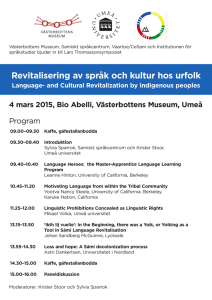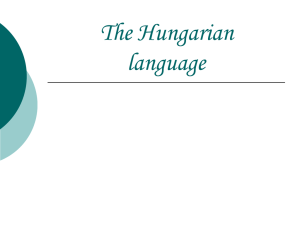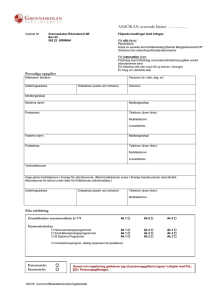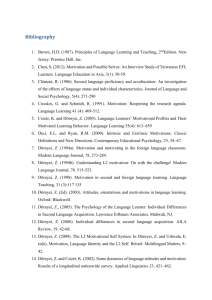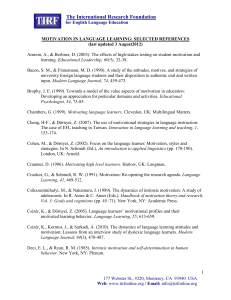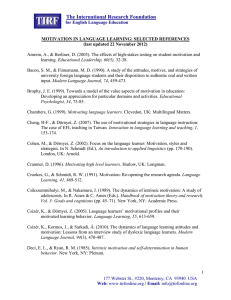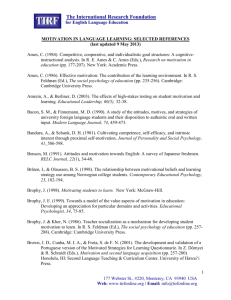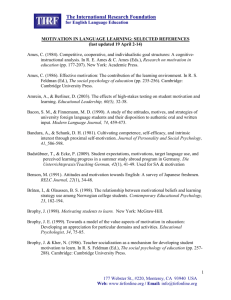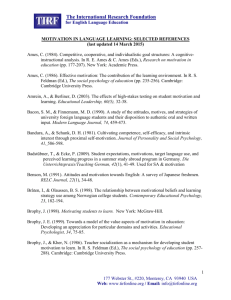the sources
advertisement
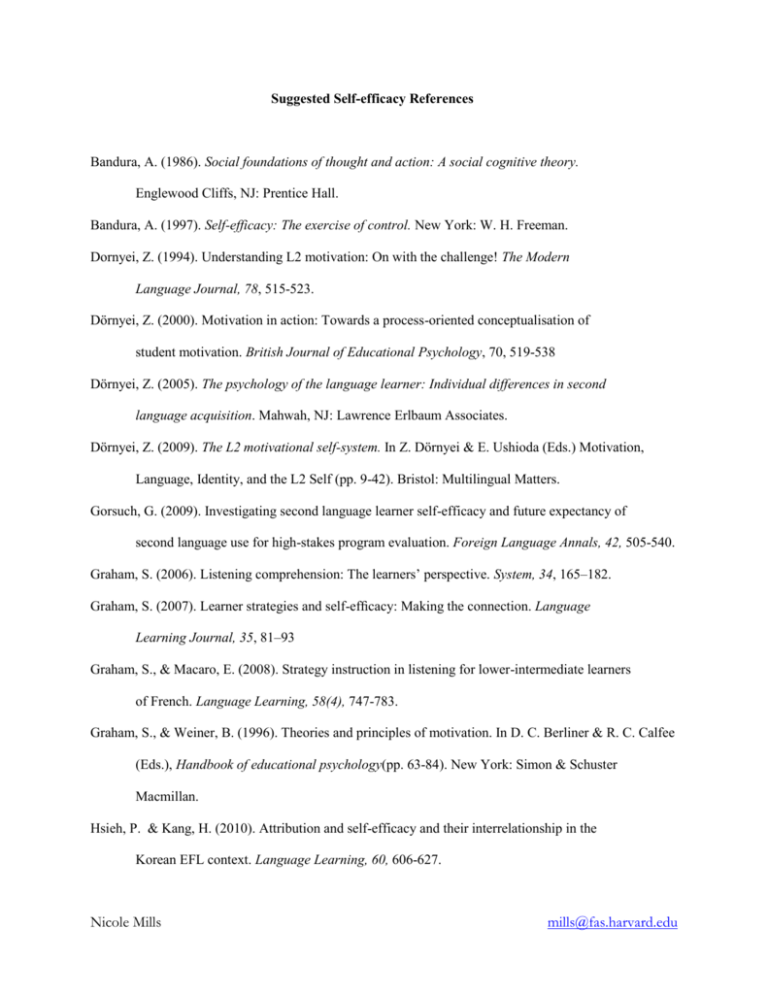
Suggested Self-efficacy References Bandura, A. (1986). Social foundations of thought and action: A social cognitive theory. Englewood Cliffs, NJ: Prentice Hall. Bandura, A. (1997). Self-efficacy: The exercise of control. New York: W. H. Freeman. Dornyei, Z. (1994). Understanding L2 motivation: On with the challenge! The Modern Language Journal, 78, 515-523. Dörnyei, Z. (2000). Motivation in action: Towards a process-oriented conceptualisation of student motivation. British Journal of Educational Psychology, 70, 519-538 Dörnyei, Z. (2005). The psychology of the language learner: Individual differences in second language acquisition. Mahwah, NJ: Lawrence Erlbaum Associates. Dörnyei, Z. (2009). The L2 motivational self-system. In Z. Dörnyei & E. Ushioda (Eds.) Motivation, Language, Identity, and the L2 Self (pp. 9-42). Bristol: Multilingual Matters. Gorsuch, G. (2009). Investigating second language learner self-efficacy and future expectancy of second language use for high-stakes program evaluation. Foreign Language Annals, 42, 505-540. Graham, S. (2006). Listening comprehension: The learners’ perspective. System, 34, 165–182. Graham, S. (2007). Learner strategies and self-efficacy: Making the connection. Language Learning Journal, 35, 81–93 Graham, S., & Macaro, E. (2008). Strategy instruction in listening for lower-intermediate learners of French. Language Learning, 58(4), 747-783. Graham, S., & Weiner, B. (1996). Theories and principles of motivation. In D. C. Berliner & R. C. Calfee (Eds.), Handbook of educational psychology(pp. 63-84). New York: Simon & Schuster Macmillan. Hsieh, P. & Kang, H. (2010). Attribution and self-efficacy and their interrelationship in the Korean EFL context. Language Learning, 60, 606-627. Nicole Mills mills@fas.harvard.edu Mills, N. A. (accepted, under review) Self-efficacy in second language acquisition. In M. Williams S. Mercer & (Eds.), Multiple Perspectives on the Self. Multilingual Matters: Bristol, UK. Mills, N. A. (in press, Spring 2013). Action research: Bridging theory and practice. Academic Exchange Quarterly: Second language acquisition and pedagogy. Mills, N. A. (2011). Teaching assistants’ self-efficacy in teaching literature: Sources, personal assessments, and consequences. Modern Language Journal 91 (1),1-11. Mills, N. A. (2009). A ‘Guide du Routard’ simulation: Enhancing the Standards through projectbased learning. Foreign Language Annals, 42(4), 607-639. Mills, N.A., & Allen, H.W. (2007) Teacher self-efficacy of graduate teaching assistants of French. In J. Siskin (Ed.), From Thought to Action: Exploring Beliefs and Outcomes in the Foreign Language Classroom. Heinle & Heinle: Boston. Mills, N. A., Pajares, F., & Herron, C. (2007) Self-efficacy of college intermediate French students: Relation to Achievement and Motivation. Language Learning, 57(3), 417-442. Mills, N. A., Pajares, F., & Herron, C. A. (2006). A re-evaluation of the role of anxiety: Selfefficacy, anxiety, and their relation to reading and listening proficiency. Foreign Language Annals, 39, 273-292. Mills, N. A., & Péron, M (2009). Global simulation and writing self-beliefs of college intermediate French students. International Journal of Applied Linguistics (156), 239-273. Pajares, F. (1996). Self-efficacy beliefs in academic settings. Review of Educational Research, 66, 543-578. Pajares, F. (2002). Gender and perceived self-efficacy in self-regulated learning. Theory into Practice, 41, 116-125. Pajares, F., Hartley, J., & Valiante, G. (2001). Response format in writing self-efficacy assessment: Greater discrimination increases prediction. Measurement and Evaluation in Counseling and Development, 33, 214-221. Nicole Mills mills@fas.harvard.edu Pajares, F., & Schunk, D. H. (2001). Self-beliefs and school success: Self-efficacy, selfconcept, and school achievement. In R. Riding, & S. Rayner (Eds.), Perception (pp. 239-266). London: Ablex Publishing. Pajares, F., & Schunk, D. H. (2002). Self and self-belief in psychology and education: A historical perspective. In J. Aronson (Ed.), Improving academic achievement: Impact of psychological factors on education (pp. 3-21). Amsterdam: Academic Press. Schunk, D. H. (1991). Self-efficacy and academic motivation. Educational Psychologist, 26, 207-231. Nicole Mills mills@fas.harvard.edu
